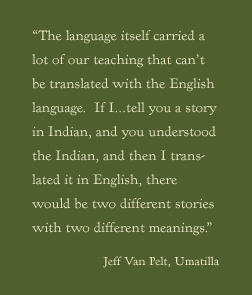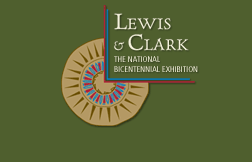
 |
INTRODUCTION TO UNIT Target Grade Level: This unit focuses on the connection between language and culture and how the knowledge of a language helps one to understand a culture. It also shows the importance of anticipating communication barriers. Without Lewis and Clark's numerous interpreters, the outcome of the expedition might have been significantly altered. Even with the interpreters, the senders and receivers of messages did not always clearly understand each other. Students will also learn about several forms of nonverbal communication in the historical context of Meriwether Lewis encountering the Shoshone Indians. Lesson 4 focuses on Chinook jargon as a trade language on the northwest coast and encourages students to explore how languages change and adapt. The final lesson, more appropriate for older students, allows students to analyze several quotes by present-day Indians who are talking about the importance of language preservation. Explore Connections to Today for this unit. MAJOR UNDERSTANDINGS
ESSENTIAL QUESTIONS
KEY KNOWLEDGE OBJECTIVES Students will:
KEY SKILL OBJECTIVES Students will:
FORMATIVE ASSESSMENT SUGGESTIONS Through various activities including writing, designing a peace medal, and creating a word list with definitions, the teacher will assess student progress.
|
|||
 |
 |
 |
 |
